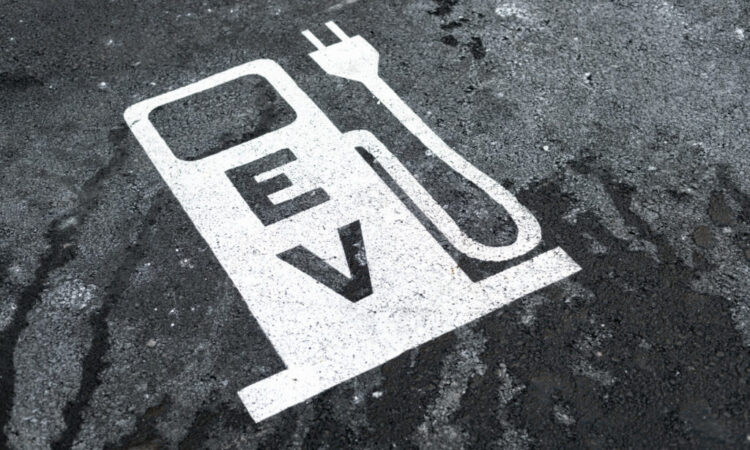Guillaume Chénard is vice-president of sales for the Globocam group, which has 10 dealerships, including nine in Quebec, selling 20 electric trucks a year – five eM2 medium-duty trucks and 15 eCascadia heavy-duty trucks.
Electric trucks account for about 1% of the network’s total sales.
The sudden suspension of the Ecocamionnage transportation decarbonization subsidy program on Sept. 6, took him by surprise.
“I must admit I was somewhat surprised by the announcement. We would have liked the government to have said ‘We’re getting close to the limit, so we have a one-month reprieve and after such-and-such a date it’s over’,” Chénard told sister publication Transport Routier.
Chénard also says that he is uncertain about the incentive status for electric trucks that Globocam delivered before Sept. 6 and for which the Ecocamionnage application form had not yet been completed.
“According to what it says, it’s not claimable. It’s problematic,” he says, adding that if customers cancel their orders, Globocam can’t cancel its order at the factory and will have to bear the interest and other costs of owning these vehicles, which would be virtually unmarketable without the $175,000 subsidy from the Quebec government.
$175,000 discount vanishes
“I relied on that. I can’t give my customers a $175,000 discount on these trucks. That puts me in a bit of hot water. Quite a lot, in fact.”
Some customers have already begun canceling their orders since the announcement of the temporary suspension of the program, and this is probably not unique to Freightliner dealers.
“Due to the exceptional response to the Ecocamionnage program and the high number of applications, the ministry will no longer accept new applications for financial assistance as of Sept. 6, 2024, until further notice,” Transports Quebec said in a statement.
It is not yet known whether the program has been suspended because the $55.8 million allocated to Ecocamionnage for the current fiscal year has been fully spent, or because officials are unable to process the entire flood of applications.
Chénard explains that he took advantage of summer to give demonstrations to various potential customers in order to close sales and deliveries in the fall.
Plan to reduce inventory
“It was sold, but now the customer says, ‘I’ll wait, I can’t take it, the program’s stopped’. I’ve got three trucks I was supposed to deliver but the customers aren’t going to take them. It’s on ice,” Chénard said.
Not to mention that the network is soon expecting arrival of the new Rizon product range, small Classes 4 and 5 electric trucks, which will complete the family made up of the eM2 (Classes 6 and 7) and the eCascadia (Class 8).
“I relied heavily on Écocamionnage to launch the line. It’s definitely going to have an impact. I was thinking of putting 15 to 20 trucks in inventory, but now I’m only going to put three to five. It’s going to change the whole game if I don’t get this subsidy,” Chénard said.
Four months on life support
When asked how long Globocam’s electric truck business would last without the Ecocamionnage program, Chénard initially mentioned a period of six months. But then he changed his mind.
“I’m actually going to be in trouble when it’s six months. By Christmas, in four months’ time, I’m in trouble. I’ve already got three trucks right now that I won’t be able to sell until I’ve got a program. I’m going to suffer with it.”
Nevertheless, he is confident that the Quebec government will renew the subsidy program, which he feels is necessary, but perhaps in a new form.
Among the changes to be made, he suggests bailing out Écocamionnage by ceasing to subsidize aerodynamic appendages such as deflectors or body fairings on diesel models, since these are already offered as standard equipment by truck manufacturers.
“We could transfer these sums to more zero-emission units,” he suggested.
Dependence on subsidies?
Is the electric truck industry too dependent on government subsidies? Chénard believes that these incentives and subsidies remain absolutely necessary.
By combining Quebec and Canadian programs, customers can cut the $650,000 bill that comes with the acquisition of a Class 8 electric truck by about half, he says. In his view, the further the technology advances, the greater the range of the batteries, the less crucial government assistance will be for the purchaser, since the return on investment will be more substantial.
“Right now, we’re still in the start-up phase. We need government assistance to sell electric trucks,” he says.
Lion Electric in analysis mode
Lion Electric’s vice-president of truck and public affairs, Patrick Gervais, was attending a conference as a guest panelist when Transport Routier reached him by e-mail to ask what impact he anticipated the suspension of the Ecocamionnage program would have on the production and sale of electric trucks bearing the Lion badge.
“Right now, we want to understand what’s going on before commenting,” he said, playing it safe.
“It’s good news to know that there’s a craze for electric vehicles, but programs like Écocamionnage are crucial if people are to switch to electric vehicles,” he said.
The province has yet to provide any details on the future status of the program.


